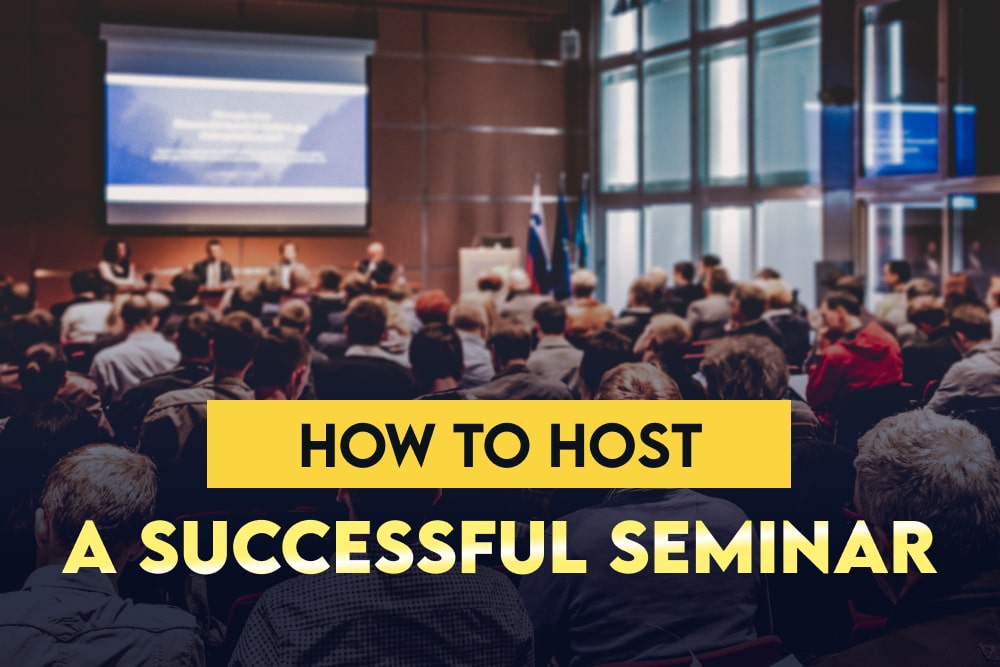

Head of HR at Rent For Event

Head of HR at Rent For Event

Seminars are cool events where people come together to learn and share ideas about specific things they’re interested in. It’s like a special gathering where experts and passionate people talk about what they know. Let’s learn the basics of hosting a seminar!
A seminar is an event where a group of people gather to learn and discuss a specific topic. It usually involves presentations, discussions, and opportunities for participants to ask questions and share their thoughts.
There are various types of seminars, each catering to specific interests and goals:
To make your seminar a big success, you need to figure out who you want to come—your special group of people. Think about who you want to teach and talk to during your event. Here are some key points to consider when identifying your target audience:
To host a successful seminar, careful planning and organization are key. Let’s explore some essential aspects to consider when planning and organizing your seminar:
To host a memorable seminar, it’s important to craft a program that captures the attention and interest of your attendees. Here are some tips to create an engaging seminar program:
To ensure a successful seminar, it’s crucial to implement effective marketing strategies to attract attendees and generate buzz around your event. Here are some key strategies to consider:
Audiovisual equipment plays a vital role in enhancing the overall seminar experience and delivering impactful presentations. Here are some key points to consider when incorporating audiovisual elements:
To execute a successful seminar, proper preparation and coordination are key. Here are some important steps to ensure a smooth seminar execution:
The end of a seminar does not mark the end of your engagement with participants. It’s important to maximize post-seminar engagement and follow-up to solidify the impact of your event. Here are some effective strategies to consider:
To host a successful seminar, you need to plan carefully, stay organized, and engage with your audience. By using the strategies we talked about in this article, you can create a seminar that really grabs people’s attention and helps them connect with each other.
Remember, seminars can be really powerful! They can help people succeed, inspire them to grow, and make them feel empowered. With trusted AV companies like Rent for Event that offer stage lighting rental and more, you can take on the challenge and make a positive impact!